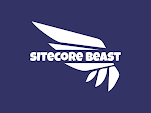What is SXA?
Sitecore Experience
Accelerator provides reusable, template UX layouts and components to help you
get up and running quickly. The features included in SXA also provide practical
solutions to separate information and page structures from the visual design
perspective, thereby offering a faster time to market without sacrificing
flexibility.
The Sitecore Experience
Accelerator (SXA) help tao organization expedite your digital go-to-market
strategy while reducing implementation and total ownership costs.
SXA enable Content Authors,
Digital Marketers and Merchandiser’s to influence the design in real time from
a business perspective.
SXA is a drag and drop
methodology, extended to meet business needs or designs for accelerated builds.
SXA separates structure from
design, so front-end designers, creative designers, content authors and
developers can work in parallel, while you deploy and maintain multiple sites
quickly and cost effectively. Once a basic user experience plan is in place,
everyone can get started on the platform. For example content author can start
entering the content in the wireframe environment, while the front-end
developer’s works on the theme, and the developer sets up the data templates.
Benefits
Ø Reusable
component’s across all sites
Ø Speed
to market
Ø Reduced
development costs
Ø Improved
author experience
Ø Consistent
code base
Ø Simpler
support
Ø Easier
upgrades
SXA Provides
Ø Multisite
Support
Ø Multi
Language Support
Ø Many
out of the box features
Ø Easy
and fast way of creating new components
Ø Authoring
improvements for faster time to market
Ø Possibilities
to start content editing early.
Concepts used by SXA
For starts, Sitecore SXA
supports multi tenancy. It provides a folder structure that enables marketers
to create and assign security roles to isolate content. Besides, it also helps
you create and assign security roles at the tenant level. You can also enable
or disable features for each tenant, or create page templates at the tenant
level.
You can easily construct
your page with a toolbox with reusable renderings. The rendering range from
simple text and images, videos to social media plugins.
SXA pages come with a
responsive grid layout. The grid divides pages into equal columns. By using row
and column splitters or by changing the grid settings of the rendering on the
page. You can decide how to divide the available columns on the page.
SXA separates structure from
design that simplifies the process of changing the design of websites. To
enable customization, SXA uses themes. A theme primarily consists of style
sheets, script and images. You can also add pluggable themes to SXA, to enable
changing the styling quickly.
SXA Terminology
Tenant:
Groupings
in the business organization that need autonomy to manage their own sites,
channels and data, while at the same time to share resources with other
tenants.
Module:
Consists of templates, branches, settings (to store scaffolding items), media library items, renderings, layouts, and so on. Default SXA modules include the rendering sections, JSON site setup, and grid Systems.
Page Design:
A
selection of partial designs that make up the structure of a page. Consists of a
selection of partial designs, you can for example make sure the header and
footers are always in the same place. You can also create a page design to
setup a page structure for specific pages, such as a blog page, a landing page
or a product page.
Partial Designs:
Sets of renderings that make up a webpage. Use partial designs to create the design elements of your pages quickly and with a consistent style. For example parts of a page such as headers and footers can be created once and then used everywhere on your site. Partial designs can inherit from each other, so you can build increasingly complex design from a basic set of reusable partial designs.
Rendering variants:
Alternative adaptation of a single components the
components has one source with multiple visual options that the user controls.
For example, a visual layout can be reused with different images and text to enhance personalization based on a viewer’s mobility.
Scopes and Facets:
Sitecore items that contain site-specific queries for providing search results. Scopes are used to limiting search results based on conditions, and facets are a way of refining search result by categorizing the items returned by the search.
Themes:
The styling of your site is defined as the look and feel of a site and within SXA themes can be created separately from the site functionality and content. SXA themes contain CSS, JavaScript, images and they can inherit from each other.
Scriban:
A fast and extendable templating language used within SXA. Scriban templates are stored in your SXA rendering variants and can both coexist with the other renderers or replace the existing rendering variants.
Creative Exchange Live:
A process that allows for the creative process to
occur at the same time as site development. Front-end developers can deploy
their CSS, HTML, and script changes via gulp tasks while importing and creating
Sitecore items simultaneously, allowing for immediate synchronization to the
Sitecore environment.


0 Comments
Post a Comment